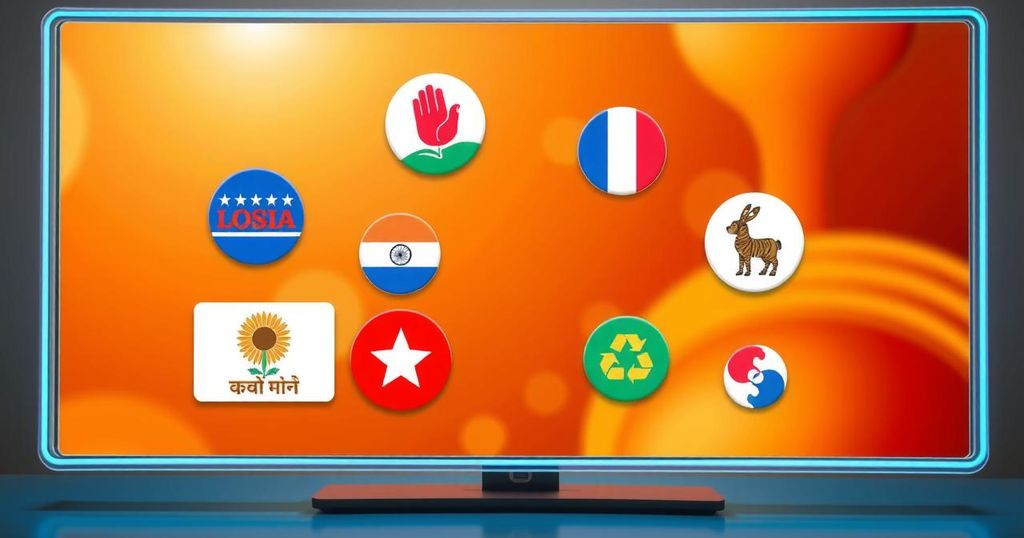Opposition INDIA Bloc Unites to Address Key Issues Ahead of Monsoon Session

- Opposition INDIA bloc holds virtual meeting ahead of Monsoon Session.
- 24 political parties to unite on issues including Pahalgam attack.
- Concerns raised over Election Commission’s revising electoral rolls.
- Government’s foreign policy under scrutiny, especially regarding Pakistan and China.
- Alliance emphasizes need for continuous communication among leaders.
Key Alliance Issues to Be Raised in Parliament
Opposition Plans Unity in Key Issues for Parliament In a significant show of solidarity, the Opposition alliance known as the INDIA bloc convened a virtual meeting ahead of the Monsoon Session of Parliament. This gathering included 24 different parties, and they spent time outlining major concerns that they intend to address during this session, which runs from July 21 to August 21. The topics picked out for discussion cover a wide array of issues including the tragic Pahalgam attack, strategy around Operation Sindoor, implications of a ceasefire declaration made by U.S. President Donald Trump, the current state of India’s foreign policy, and pressing matters related to the Election Commission’s ongoing Special Intensive Revision (SIR) of electoral rolls in Bihar. Their united front aims to pressure the government on these critical matters as they hope to prompt Prime Minister Narendra Modi’s presence in Parliament for questioning.
Focus on Injustices and Security Failures
Concerns Over Government’s Handling of Security and Democracy Prominent leaders from the Opposition, including Sonia Gandhi, Rahul Gandhi, and other notable figures, all echoed sentiments that governmental failures have significantly impacted the lives of 140 crore citizens. Pramod Tiwari, a key Congress leader, spoke to the media after the meeting, highlighting that the Pahalgam attack remains a focal point, emphasizing that it bears directly on the dignity and self-respect of the Indian populace. Tiwari lamented the apparent inaction regarding the arrest of those responsible for leaving many families devastated following the attack, emphasizing the government’s failure to provide appropriate security measures. In addition to the Pahalgam tragedy, the meeting also targeted allegations of ‘votebandi’ linked to the SIR process in Bihar, claiming manipulation based on preferences related to the ruling party. Tiwari stressed this constitutes a dire threat to democratic processes amid what he termed an “undeclared emergency.”
Reinforcing Democracy Through Constructive Critique
Demand for Open Dialogue and Continuous Collaboration The concerns presented in the meeting were not limited to past incidents; future challenges also emerged, including questions surrounding India’s foreign relations, particularly with Pakistan and China. Tiwari pointed out that issues like the suffering in Gaza will also be highlighted during parliamentary discussions. Furthermore, the Sentinel-group concerns about delimitation and injustices faced by various communities, such as SCs, STs, women, and minorities, were included in the proposed talking points. A significant call among leaders was for regular meetings of the alliance rather than infrequent sessions to solidify their cooperative stance. Notably, the meeting marked the first time in over a year the INDIA bloc convened outside Parliament, underlining the era of renewed cooperation. Reports indicate that the Marathwada leaders sought to raise additional concerns regarding statehood restoration for Jammu and Kashmir, further expanding their agenda as they approach critical parliamentary debates.
The INDIA bloc has displayed a renewed commitment to addressing pressing issues facing India, from the Pahalgam attack to electoral democracy. Their collective strategy aims to hold the government accountable on multiple fronts while also advocating for the restoration of J&K statehood. With the Monsoon Session just around the corner, these discussions highlight the need for continuous political engagement and dialogue in the face of significant national challenges.







